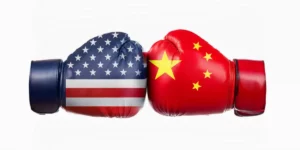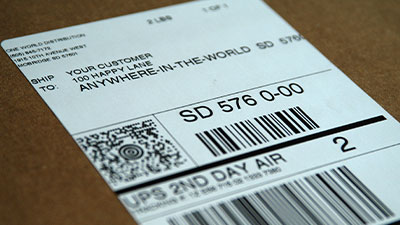Recent tariff changes have significantly impacted ecommerce imports, especially those involving low-value goods. The de minimis exemption is at the center of these changes. This provision allows goods below a certain value threshold to enter the country duty-free, helping ecommerce businesses save on import costs.
The de minimis exemption cleverly allows businesses to navigate these tariff adjustments. Understanding how to leverage this exemption can be vital for maintaining competitive pricing and ensuring your international market is still profitable.
By staying informed about these regulatory shifts, ecommerce entrepreneurs can better strategize their sourcing and fulfillment processes, ultimately turning potential cost centers into profit centers.
Understanding the De Minimis Exemption
What is the De Minimis Exemption?
The de minimis exemption is a regulatory measure allowing low-value imports to enter a country duty-free. For ecommerce businesses, this means products below a certain value threshold can bypass customs duties and taxes, making international shipping more affordable.
- Definition: The term de minimis refers to something too minor or trivial to merit consideration, especially in law.
- Significance: This exemption is crucial for ecommerce businesses importing goods, as it can significantly reduce tariffs and customs processing costs.
How Does the De Minimis Exemption Work?
The de minimis exemption facilitates the duty-free entry of low-value imports. Here’s how it impacts ecommerce:
- Low-Value Imports: Goods valued below the de minimis threshold (often $800 in the U.S.) can enter without paying standard import duties.
- Cost Savings: Ecommerce businesses benefit from reduced import costs, which can enhance profit margins and competitive pricing.
State-Specific Variations
While the federal threshold generally applies, some states may have specific provisions affecting how the de minimis exemption is implemented.
- California De Minimis Exemption: California’s approach aligns with federal regulations but may include additional local compliance rules.
- CFTC De Minimis Exemption: The Commodity Futures Trading Commission (CFTC) also has de minimis exemptions impacting financial transactions, though not directly relevant to physical goods imports.
Understanding these nuances helps ecommerce business owners navigate varying regulations efficiently. Consulting your 3PL partner is the best course of action since they will be updated on the most recent regulations you must follow to stay compliant.
Key Takeaways
For ecommerce entrepreneurs:
- Knowing what qualifies under the de minimis exemption is essential for strategic sourcing.
- State-specific variations can affect your cost structures; staying informed can optimize your operations.
- Stay proactive in monitoring any changes to de minimis thresholds and regulations to ensure smooth import processes.
The Role of the De Minimis Exemption in International Trade
De Minimis Tax Exemption vs. De Minimis Tariff Exemption
The de minimis exemption plays a crucial role in international trade by allowing low-value imports to enter a country without incurring taxes or tariffs. This exemption is divided into two categories:
- De Minimis Tax Exemption: Allows goods below a certain value threshold to be imported without paying local taxes such as VAT or sales tax.
- De Minimis Tariff Exemption: Permits duty-free entry for imports under a specific value, avoiding customs duties.
Significance in International Trade
For ecommerce businesses, these exemptions are significant because they can reduce import costs and streamline the shipping process. Here’s how:
- Cost Savings: By leveraging the de minimis tax and tariff exemptions, businesses can save on import duties and taxes, making their products more affordable for customers.
- Simplified Logistics: Low-value shipments benefit from faster processing times at customs, reducing delays and improving delivery speed.
De Minimis Quantity Exemptions
Another important aspect is the de minimis quantity exemption, which refers to the allowance of a limited number of items to be imported duty-free regardless of their individual value. This can be particularly useful for ecommerce businesses dealing with bulk orders of inexpensive items.
Relevance in International Trade
These exemptions are vital for maintaining competitive pricing and ensuring smooth cross-border transactions. For example:
- An ecommerce business importing small electronics from China under the de minimis tariff exemption avoids hefty duties, thereby keeping prices attractive for consumers.
- Retailers using the de minimis tax exemption can offer lower prices by bypassing local taxes on low-value goods like accessories or apparel.
- By understanding and utilizing these exemptions, ecommerce businesses can enhance their international trade operations, reduce logistics costs, and improve customer satisfaction.
Impact of Trump's Policies on the De Minimis Exemption
Overview of Trump's Policy Delays
Trump’s administration has introduced several changes that impact the de minimis exemption, which allows low-value imports to enter the U.S. duty-free. The delay in ending the de minimis trade exemption for Chinese imports has caused significant uncertainty for ecommerce businesses relying on these cost-effective products. This policy change means that items previously exempt from tariffs might now incur additional costs, altering the financial dynamics for companies importing goods from China.
USPS Suspension of Packages from China
Adding to these complexities, there have been instances where USPS suspended packages from China, due to various operational and strategic reasons. This suspension directly impacts ecommerce businesses by disrupting their supply chain and leading to potential delays in inventory replenishment. It’s crucial for ecommerce entrepreneurs to stay informed about such developments and adapt their sourcing strategies accordingly.
Key Implications for Ecommerce Businesses
- Increased Costs: With potential additional tariffs on low-value Chinese imports, your overall cost structure might be affected.
- Supply Chain Disruptions: USPS suspensions can lead to delays, requiring alternative logistics solutions.
- Strategic Adjustments: Businesses might need to explore new suppliers or consider domestic alternatives.
Navigating these challenges requires proactive measures and strategic planning. Partnering with a reliable fulfillment provider like One World Direct (OWD) can help streamline operations and mitigate risks associated with tariff changes and logistical disruptions.
Current Status and Future Outlook of the De Minimis Trade Exemptions
Recent Developments in Tariff Regulations
Tariff regulations are constantly evolving and significantly impact ecommerce companies, especially those relying on imports from China. Recent changes have seen an increase in scrutiny and adjustments to policies that directly affect the flow of goods under the de minimis exemption. These changes can alter how ecommerce businesses manage their import strategies.
Focus on Imports from China
 Imports from China have been at the forefront of these tariff changes. Several new tariffs have been introduced, raising costs for ecommerce businesses that depend on Chinese products.
Imports from China have been at the forefront of these tariff changes. Several new tariffs have been introduced, raising costs for ecommerce businesses that depend on Chinese products.
Here’s what you need to know:
- Increased Tariffs: Many products imported from China now face higher tariffs, which can increase businesses’ costs.
- Customs Regulations: New customs regulations may impose stricter controls and documentation requirements, potentially delaying shipments.
Future Outlook
Looking ahead, ecommerce businesses should prepare for further changes in tariff regulations. Governments may continue to adjust policies based on economic and political factors.
Key Considerations
- Monitor Policy Changes: Stay updated with tariff regulations to anticipate any potential impacts on your business.
- Adapt Sourcing Strategies: Consider diversifying suppliers or exploring local sourcing options to mitigate risks associated with Chinese imports.
- Leverage Fulfillment Solutions: Personalized-to-Consumer (P2C) fulfillment services can help offset tariffs altogether and turn fulfillment from a cost to a profit center. Start offering product personalization, including custom engravings, embroidery, and direct-to-object printing.
Practical Implications for Ecommerce Businesses
Sourcing Strategies and Cost Structures
Changes in tariff regulations, like the shein tariffs, can significantly impact your ecommerce business. These regulatory adjustments might increase costs, thereby affecting your sourcing strategies. Here are some ways you might need to adapt:
- Supplier Diversification: You may need to explore suppliers in countries with lower tariffs to maintain competitive pricing.
- Local Sourcing: Consider sourcing products domestically to avoid international tariffs, though this may result in higher production costs.
- Negotiating with Suppliers: Work on better terms with your current suppliers to offset increased tariff costs.
Impact on Cost Structures
Tariff changes can alter your cost structure. Here’s how:
- Increased Product Costs: Higher tariffs on imports from China could raise the cost of goods sold (COGS), squeezing profit margins.
- Shipping and Fulfillment Expenses: Tariffs might affect shipping rates and lead times, requiring adjustments in logistics planning.
- Pricing Adjustments: You may need to pass some of these additional costs onto customers, potentially impacting sales volumes.
Adapting to these changes involves strategic planning. Leveraging services like OWD’s Personalized-to-Consumer (P2C) fulfillment can turn these challenges into opportunities by differentiating your brand and enhancing customer experiences.
De Minimis Exemption by State
The de minimis tariff exemption is a federal policy, but state-level tax rules can still affect your landing costs. Under current U.S. law, shipments valued at $800 or less can enter the country duty-free and tax-free at the federal level (source: CBP). This means you don’t pay customs duties on qualifying imports, which streamlines cross-border ecommerce for brands of all sizes.
States, however, may have their own rules, especially when it comes to sales and use taxes:
- California de minimis exemption: California doesn’t offer an additional de minimis threshold for state taxes. All imported goods sold to California residents are subject to the same state and local sales tax rates, regardless of value. If you’re shipping into California from overseas, be prepared to collect and remit California sales tax on those orders.
- Florida de minimis exemption: Florida also lacks a separate de minimis rule for state taxes. Imports that qualify for the federal duty exemption may still trigger Florida’s sales tax if sold to customers in-state.
Most states follow this pattern: the de minimis tariff exemption lets goods bypass federal customs duties up to $800, but doesn’t override state sales or use tax requirements. Ecommerce sellers should check each destination state’s guidance, especially if using multiple fulfillment centers or dropshipping models, to ensure compliance with local tax laws. For instance, cross-border Canadian companies can have sales tax obligations in US states, which adds another layer of complexity.
For brands scaling nationwide, understanding both federal and state rules around de minimis exemptions helps prevent surprise costs and keeps profit margins predictable. Understanding customs duty calculations is crucial as these can significantly impact overall landing costs.
Let the Experts Help You Navigate Tariffs and Stay Profitable
Navigating through complex trade regulations can be daunting for ecommerce business owners. Understanding the meaning of de minimis and its relevance is crucial to staying competitive in the global market.
Key Takeaways for Ecommerce Brands:
- Stay Informed: Keep up-to-date with recent tariff changes, especially those affecting ecommerce imports under the de minimis provision. Knowledge is power when it comes to adjusting your business strategies.
- Optimize Sourcing Strategies: Evaluate how these regulatory changes impact your sourcing and cost structures. Adjustments might be necessary to maintain profitability.
- Leverage Fulfillment Services: Turn rising tariff costs into a profit center by utilizing high-touch fulfillment services like those offered by OWD.
How OWD Can Help:
OWD provides comprehensive fulfillment solutions designed to lower costs and enhance performance. Our services include:
Personalized-to-Consumer (P2C) Fulfillment
Ecommerce customer support (call center services)
Comprehensive fulfillment services
By partnering with OWD, you can start lowering fulfillment costs while drastically improving fulfillment performance and unboxing experiences. Let us help you transform your fulfillment strategy from a cost center to a profit center, making your ecommerce business more resilient and prosperous despite fluctuating international trade regulations.
FAQs (Frequently Asked Questions)
What is the De Minimis Exemption and why is it important for ecommerce imports?
The De Minimis Exemption refers to the threshold below which imported goods are exempt from tariffs and taxes. This exemption is significant for ecommerce businesses as it allows low-value imports to enter duty-free, reducing costs and simplifying international trade procedures.
How have recent tariff changes impacted ecommerce imports, especially those from China?
Recent tariff changes, including adjustments to the De Minimis provision, have affected ecommerce brands by altering duty-free thresholds and import costs. These changes particularly impact goods imported from China, potentially increasing expenses and influencing sourcing strategies for ecommerce businesses.
What role did Trump's policies play in the De Minimis Exemption for Chinese imports?
Under Trump's administration, there were delays in ending the De Minimis trade exemption for Chinese imports. This postponement affected ecommerce by maintaining certain duty-free benefits temporarily. Additionally, USPS's suspension of packages from China created further implications for businesses relying on Chinese imports.
Are there variations in the De Minimis Exemption across different states, like California and Florida?
Some states, such as California and Florida, have specific considerations or implementations related to the De Minimis Exemption. Understanding these state-level differences is crucial for ecommerce businesses operating regionally to comply with local regulations and optimize import operations.
How can ecommerce businesses adapt their sourcing strategies in response to new tariff regulations affecting imports?
Ecommerce entrepreneurs should reassess their sourcing strategies by considering tariff impacts on cost structures. This may involve diversifying suppliers, adjusting order quantities to stay within duty-free thresholds, or leveraging fulfillment services like OWD that help lower costs while improving performance and customer experience.
What practical solutions exist for ecommerce brands to navigate complex trade regulations and maintain competitiveness?
Ecommerce companies can partner with comprehensive fulfillment service providers offering end-to-end solutions, including customer support and P2C fulfillment. Utilizing such services helps manage tariffs effectively, lowers fulfillment costs, enhances delivery performance, and ultimately turns fulfillment into a profit center amidst evolving trade regulations.




